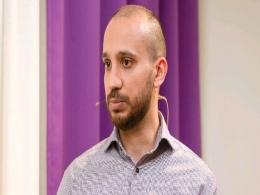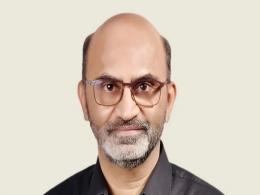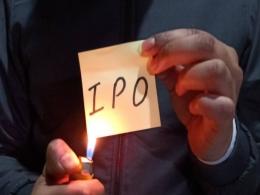Hewlett-Packard Co is considering a dramatic turn away from the struggling PC business by spinning it off into a separate company and is buying British software maker Autonomy Corp for $11.7 billion, focusing on faster-growing technology sectors.
Underscoring the problems plaguing what was once its core business, the iconic Silicon Valley company also plans to kill WebOS-based phones and the TouchPad tablet, which was launched in June but has failed to excite consumers.
The barrage of news, which forced HP to announce third-quarter earnings an hour early, masked a sharp reduction in HP's estimates for full-year revenue and earnings that sent its shares 6 per cent down to a 52-week low. They slid another 7 per cent to $27.50 in after-hours trade.
HP CEO Leo Apotheker is responding to mounting pressure to fire up growth just as global economic and tech-spending outlooks darken. Like other PC makers, it is struggling to come up with an answer for Apple Inc's iPhones and iPads, which are gobbling up PC market share.
The announcement is the second this week to show how quickly technology companies are transforming as they jockey for position to cope with radical changes in consumer demand. Google Inc on Monday announced it was buying mobile handset maker Motorola Mobility for $12.5 billion, launching the Internet search and mobile software company into manufacturing for the first time.
HP's third-largest acquisition ever and its potential departure from the PC arena sets in motion a transformation that recalls International Business Machine Corp's overhaul of the last decade.
HP "is saying 'I want to be more like IBM.' They divested their PC business and they got more involved in software," said FBN Securities analyst Shelby Seyrafi.
"The PC industry is a very challenged one because of the slow growth in that sector. For those companies like HP which don't have a strong tablet offering, they are victims of the encroachment of Apple's iPads and tablets on their notebook business. So they're vulnerable to losing share."
The acquisition of cloud search-software specialist Autonomy, which analysts say may draw rival bids, marks its boldest foray into the software and technology services after Apotheker came on board with a mandate to drive innovation.
Speculation has swirled for months that HP was no longer keen on keeping a PC business struggling with low growth and single-digit margins.
Sources told Reuters in June that private equity firms from Blackstone Group and Kohlberg Kravis Roberts to TPG Capital would like HP to break up and sell them some of its units, arguing that the world's No. 1 PC maker and tech powerhouse is stretched too thin.
A PC spinoff marks a historic shift for a company that Bill Hewlett and Dave Packard built into a sprawling $120 billion empire from a $538 garage operation in 1939.
"HP is recognizing what the world has recognized, which is hardware in terms of consumers is not a huge growth business anymore," said Michael Yoshikami, chief executive of YCMNET Advisors, a minor shareholder in HP. "It's not where the money is. It's in keeping with the new CEO's perspective that they want to be more in services and more business oriented."
Leo Makes Bold Move
Spinning off the PC division, run by personal systems group chief Todd Bradley, would mark one of the biggest makeovers for the company since 1999, when it spun off its measurement and components businesses to form Agilent Technologies.
In 2001, it engineered an acquisition of PC rival Compaq, laying the foundation for its later domination of the sector.
Some alternatives HP is exploring include hiving off its PC business into a separate company through a spin-off or other transaction that would likely be tax-free to U.S. shareholders. HP expects the process to be completed within 12-18 months.
Apotheker, a former chief of European software giant SAP AG, had been expected to drive an expansion of the company's relatively small but very profitable software division -- including through major acquisitions.
Cambridge, England-based Autonomy counts Procter & Gamble Co among a long list of major corporate customers that use its software to search and organize unstructured data like emails. It said the offer values its fully diluted share capital at 7.09 billion pounds ($11.7 billion). The British firm's CFO, Sushovan Hussain, is on a visit to California, a source told Reuters.
"HP would be buying this as part of a refocus of the business on software," said Tim Daniels, technology, media and telecoms strategist at Olivetree Securities. "Clients now don't have a problem accumulating data, the problem is the structuring of it. Eighty percent of the data on the Web now is unstructured: video, pictures, emails, etc."
Killing The Touchpad?
HP's Personal Systems Group also includes smartphones, tablets and the WebOS operating system, pulling in about $41 billion in revenue but only about 13 percent of profit.
HP's decision to discontinue the TouchPad -- which hit the store shelves in July with much costly fanfare -- follows poor demand. It was discounted by $100 a month after it was launched in a market dominated by the iPad. WebOS came with the $1.2 billion acquisition of Palm last year.
"There were also a lot of missteps, such as launching it a month before it was ready and pricing it the same as the iPad 2," said Current Analysis' Avi Greengart. "It was a great operating system. Everybody was pulling for it but a lot of people weren't buying it."
Going forward, HP expects further pressure on its revenue and cut its full-year forecast for the third straight quarter.
HP now expects full-year revenue of $127.2 billion to $127.6 billion, down from a previous estimate of $129 billion to $130 billion. It also cut its earnings per share estimate to a range of $3.59 to $3.70, down from its previous estimate of at least $4.27 per share.
Barclays Capital and Perella Weinberg are advising HP, while Qatalyst Partners, Goldman Sachs, Citigroup, Merrill Lynch, UBS and JPMorgan Chase are advising Autonomy.





